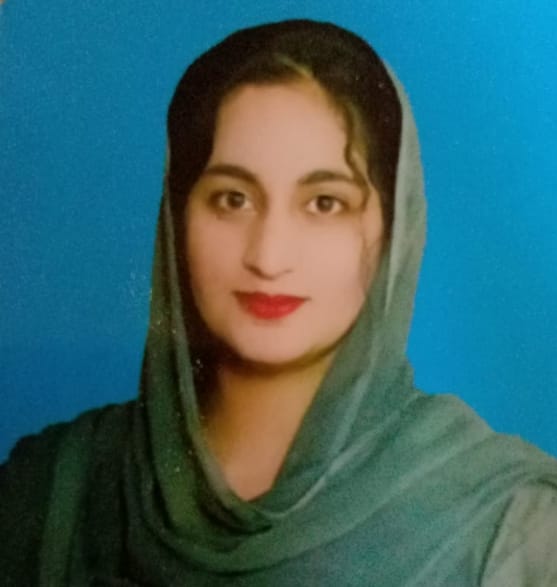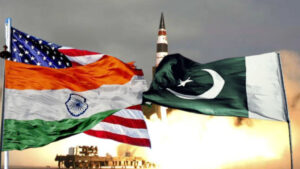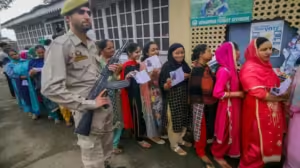Syeda Rida Fiaz
Jammu and Kashmir, a focal point of conflict between two nuclear powers in South Asia since 1947, has witnessed its first elections in a decade. The political landscape in Indian Illegally Occupied Jammu and Kashmir (IIOJ&K) remains fraught with oppression and tension as elections unfold amid severe human rights violations. The elections 2024 in IIOJK are an effort to divert the direction of liberation movement of the people of Jammu and Kashmir. Previously, India have tried to rig Kashmir elections several times but failed to oppress the freedom struggle. Each time people of IIOJK strongly rejected Indian efforts to influence the political will of people. This time, elections 2024, held under the disguise of directive of the Indian Supreme Court, are the first since the abrogation of Articles 370 and 35A. As a matter of fact, such polls through abrogating basic rights of people of the Jammu and Kashmir have no legal justification. Article 370 was a major hurdle for India as it provided Jammu and Kashmir a special status within India, allowing the region to have its own constitution and autonomy except few areas such as foreign affairs, defense, and communications. On the other hand, the Article 35A empowered the state’s legislature to determine permanent residency rights which became a legal hurdle for Hindutva government to change demography. The revocation of these articles in 2019 dismantled Jammu and Kashmir’s autonomy, enabling the central government to impose its decisions and laws directly on the region.
Since the abrogation, numerous international human rights organizations, including Amnesty International and Human Rights Watch, have documented widespread human rights violations. During and before the rigged elections of 2024 in IIOJK, the government of India started a huge campaign against dissenting voices. These include arbitrary detentions, enforced disappearances, restrictions on media and press freedom, internet blackouts, and curtailments of free speech. The elections are taking place in an atmosphere of repression, with local political leadership facing imprisonment, house arrests, and censorship. Notable leaders such as Yasin Malik, Umar Farooq, and Asiya Andrabi are either imprisoned or under house arrest, while political figures like Omar Abdullah and Mehbooba Mufti face censorship and detention.
The pervasive environment of fear and oppression has severely impacted voter participation in the electoral process. According to Voice of America, the voter turnout in the first phase was 56%, with many Kashmiris casting ballots primarily to prevent the Bharatiya Janata Party (BJP) from gaining power in the region. However, a significant portion of the population views these elections as illusory, believing that they cannot address the longstanding issues of exploitation and discrimination. After years of state repression, many Kashmiris feel that India’s interests lie in the resources of Kashmir rather than the welfare of its people. The freedom house statistical analysis shows that India secured 27 out of 100 in political rights and civilian liberties during the year 2023.
The first six months of 2024 have witnessed intensified counter-insurgency operations, enforced disappearances, and serious violations of international human rights and humanitarian laws. In the context of the ongoing elections, the central government has enacted legislation granting the Lieutenant Governor (LG) more power and autonomy than the legislative assembly. The LG now holds authority over all Indian cadre officers, the Jammu and Kashmir Police, the bureaucracy, administrative secretaries, and the appointment of key legal officers. Essentially, Jammu and Kashmir now functions as a union territory, governed directly by the central government. The LG, appointed by the President of India, holds extensive powers, further diminishing the role of the regional government.
This centralization of power underscores the hypocrisy of the Indian government, rendering the newly formed government in Jammu and Kashmir powerless to change the region’s status. It is expected to function in line with the will and directives of the Lieutenant Governor. These developments raise significant questions about the credibility and fairness of the ongoing elections, which many view as nothing more than a façade.
The views expressed in this article belong to the author only, and do not necessarily reflect the views of The Global Politico.








